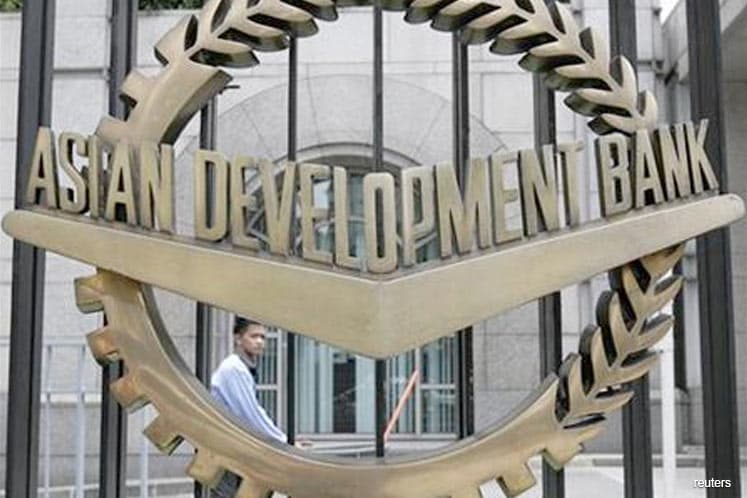
KUALA LUMPUR (Jan 13): Asian Development Bank (ADB) operations—comprising approvals of loans and grants, technical assistance (TA), and cofinancing—reached US$28.9 billion in 2017.
In a statement on its website yesterday, ADB said approvals of loans and grants from its own resources reached a record US$19.1 billion, representing a 9% increase from the US$17.5 billion seen in 2016.
ADB said this puts it well on its way to meet its US$20 billion target by 2020.
The bank said of the total, nonsovereign (primarily private sector) operations accounted for US$3.2 billion, a 26% increase from US$2.5 billion in 2016.
TA, meanwhile, increased by about 22% to US$205 million from US$169 million in the previous year, it said.
ADB said commitments (the amount of loans and grants signed)—the bank’s new performance measure—reached US$20.1 billion.
It said this was a significant increase from US$13.3 billion in 2016, reflecting the signing of large projects approved in 2016 and 2017.
ADB president Takehiko Nakao said the strong figures for ADB operations in the past year were supported by the successful merger of ADB’s concessional Asian Development Fund lending operations with the Ordinary Capital Resources balance sheet—which took effect at the start of 2017.
“This will allow us to deliver a much higher level of assistance to our developing member countries for years to come without seeking a capital increase,” he said.
Nakao said a highlight of ADB’s operational figures for 2017 is climate financing, which reached a record US$4.5 billion (comprising mitigation US$3.6 billion and adaptation US$900 million), a 21% increase from 2016.
He said this puts ADB in a good position to achieve its US$6 billion climate financing target by 2020.
ADB said cofinancing approvals declined to US$9.5 billion in 2017 from the US$13.9 billion recorded in 2016, partly due to the delay of large expected cofinanced projects.
The bank said disbursements were US$11.7 billion in 2017, compared to US$12.7 billion in 2016.
It said this was because of lower approvals, and hence disbursements, of policy-based lending and counter-cyclical support facility, among other factors.
Nakao said disbursements were essential to make a difference on the ground.
“Cofinancing and catalysation is a much-discussed strategy in the international community to realize the Sustainable Development Goals.
“ADB will come up with additional concrete measures to increase disbursements and cofinancing, building on the new procurement policy approved in April 2017 and ongoing efforts to leverage resources,”he said.